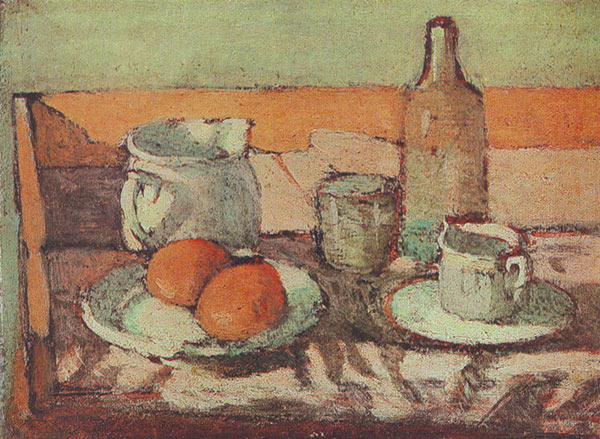Subtotal: $
Checkout
The Plough Music Series is a regular selection of music intended to lift the heart to God. It is not a playlist of background music: each installment focuses on a single piece worth pausing to enjoy. This article was originally published on March 10, 2014.
In 1629, the thirty-five-year-old politician George Herbert seemed set for a promising career in public life. He had already been a favorite of King James I as a student, and now he was an up-and-coming member of Parliament. Instead, he abandoned it all to become a priest in an obscure rural church. Never a healthy man, he died of consumption four years later.
From his deathbed, he sent a friend the manuscript of his collected poems, The Temple, which he described as “a picture of the many spiritual conflicts that have passed between God and my soul, before I could subject mine to the will of Jesus, my Master.” The poem “Love Bade Me Welcome” (or “Love III”) is surely the record of one such struggle. Its description of doubt and anguish yielding to Christ’s unmerited love has been treasured by generations of readers:
Love bade me welcome. Yet my soul drew back
Guilty of dust and sin.
But quick-eyed Love, observing me grow slack
From my first entrance in,
Drew nearer to me, sweetly questioning,
If I lacked any thing.
A guest, I answered, worthy to be here:
Love said, You shall be he.
I the unkind, ungrateful? Ah my dear,
I cannot look on thee.
Love took my hand, and smiling did reply,
Who made the eyes but I?
Truth Lord, but I have marred them: let my shame
Go where it doth deserve.
And know you not, says Love, who bore the blame?
My dear, then I will serve.
You must sit down, says Love, and taste my meat:
So I did sit and eat.

János Nagy Balogh, Still-life, oil on paper
In English composer Ralph Vaughan Williams’s 1906 setting, Herbert’s poem is sung by a baritone solo, joined in the final stanza [4:25] by a choir wordlessly singing the melody of the plainsong “O Sacrum Convivium” – Thomas Aquinas’s meditation on Christ’s promise to be present at the communion table. Here at the climax of the piece, the speaker at last accepts Love’s invitation to “sit and eat.”
This 2004 recording features Sir Thomas Allen with the BBC Symphony Orchestra and Chorus and the BBC Singers, conducted by Leonard Slatkin.
https://www.youtube.com/watch?v=Xn9vo82lXh4
Already a subscriber? Sign in
Try 3 months of unlimited access. Start your FREE TRIAL today. Cancel anytime.







Judith Ford
What a blessing to start a Lenten Monday. Thank you.
Douglas Thain
Thank you once again. This time for introducing me to the life of George Herbert and his imaginative Christian poetry. It is amazing that the whole collection of his work was not lost.
Tim Page
Thanks for this helpful post.